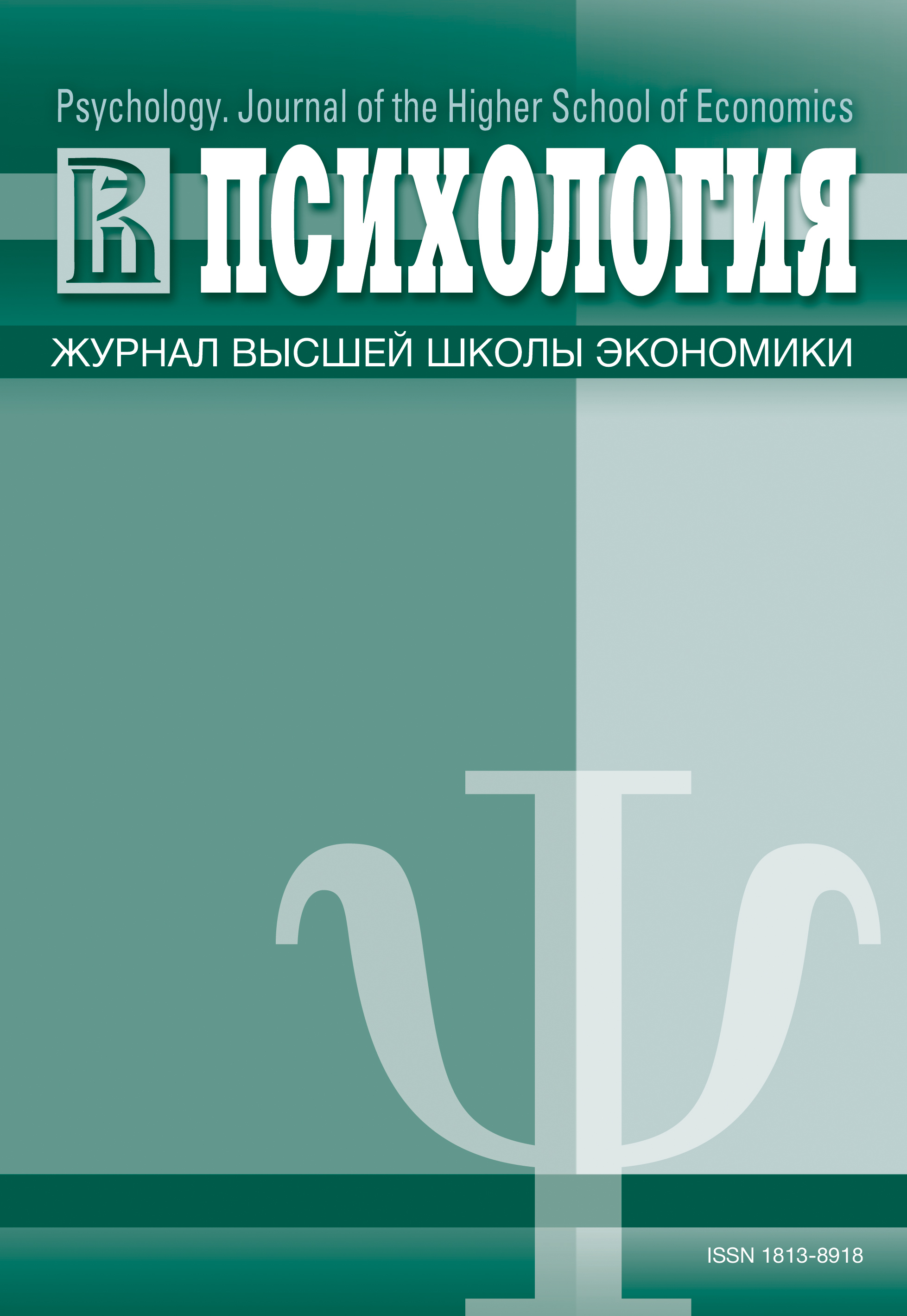New Methods for Thinking Process Research
Keywords:
problem, experimental and non-experimental methods, problem representation
Abstract
The present situation in thinking research can be characterized as “methodological hunger”, because the number of methods available is small, and they are hardly new. One of the main challenges in the field is the study of the structure of problem representation that plays a key role in thinking. The author discusses the limitations of existing methods for problem representation research and describes three studies of problem representation carried out within experimental and non-experimental settings. The studies used different tasks (problem classification, solution principle transfer, and description of solution structure) applied to algebra problems expressed in textual form. Several different methods were used to reveal the process of thinking. A modification of the “Yes-No” method involves varying the presence of certain structural elements of a problem in order to find out the specific elements used by participants to solve it. Higher competence was associated with larger number of types of problems successfully solved by participants. Usage of problems with similar structure organized in groups allows to study the contribution of specific structural elements of the problem to solution transfer. Creation of paradigms (classes of units grouped on a certain basis and yet logically opposed to each other) using equations with substantial meaning allows to evaluate the frequency of occurrence of each type of problem representation and to interpret the solution errors of different types. The new methods for thinking research can facilitate new theoretical and empirical research, contributing also to solution of classical problems in the field.Downloads
Download data is not yet available.
Published
2013-12-06
How to Cite
СпиридоновВ. Ф. (2013). New Methods for Thinking Process Research. Psychology. Journal of the Higher School of Economics, 10(4), 5-38. https://doi.org/10.17323/1813-8918-2013-4-5-38
Issue
Section
Theoretical and Empirical Research





